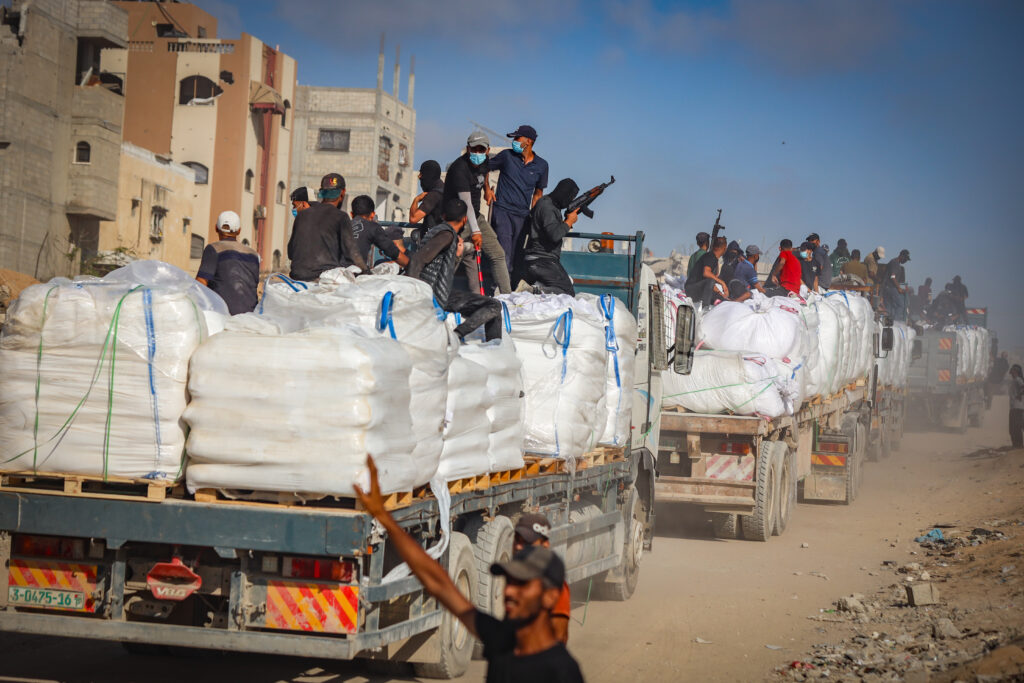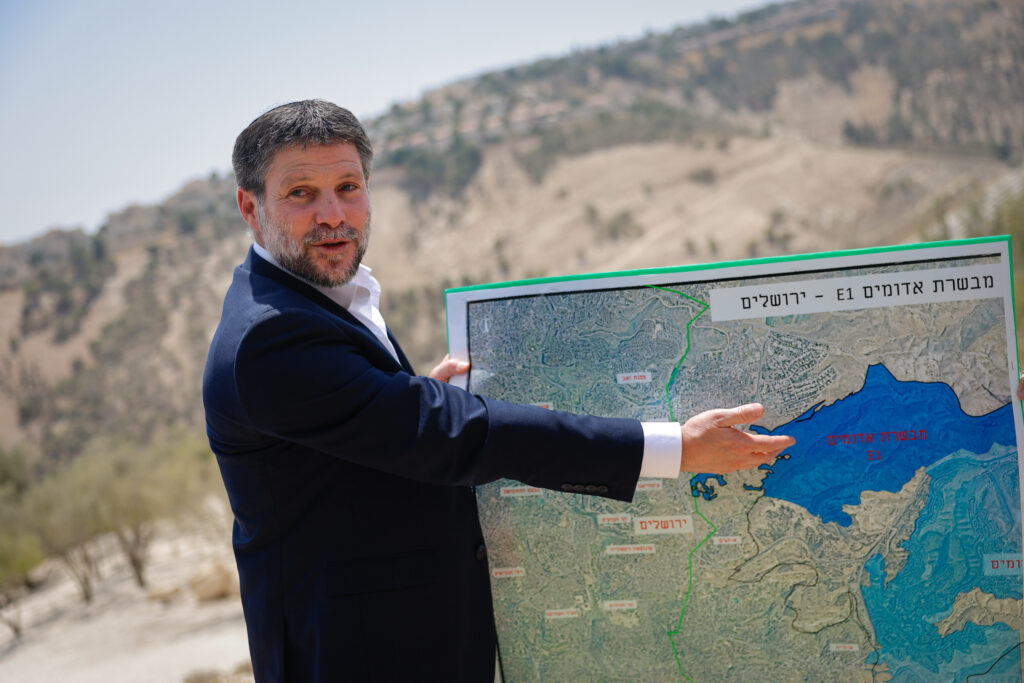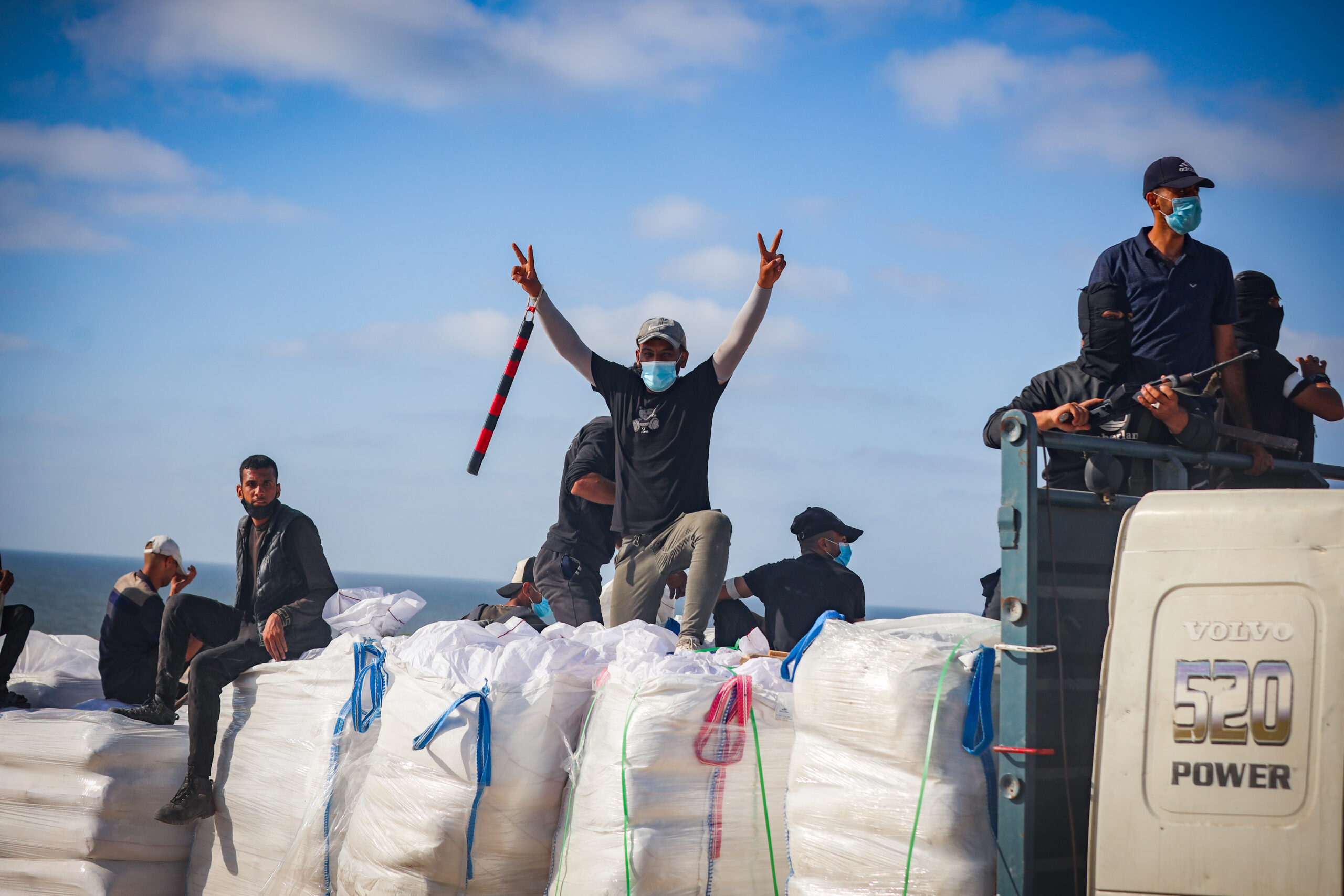Palestinian Aid-Truck Drivers Linked to Terrorist Groups Arrested
Security checks fail to catch some suspects before entry into Israel
Recent investigations have uncovered that several Palestinian truck drivers, authorized to transport humanitarian aid into Gaza, were secretly affiliated with terrorist groups, according to Israel’s Army Radio.
Although every aid driver is subject to a security screening before receiving clearance to enter Israel, authorities say that some individuals with militant ties managed to pass these checks. Defense sources report that in the past few weeks, multiple drivers have been detained after their connections to organizations such as Hamas, Palestinian Islamic Jihad, and the Popular Front for the Liberation of Palestine came to light.
One driver arrested near the Kerem Shalom Crossing is believed to be the father of a militant involved in the abduction of Israelis during the Hamas-led attack on Oct. 7, 2023. Another, also stopped in the same area, was identified as a former PFLP member released during a recent ceasefire. Though barred from the crossing, he claimed he had “gotten lost.” A third driver was later confirmed to be a Hamas operative.

The Israel Defense Forces (IDF) stated that anyone found to have terrorist ties will be arrested immediately, stressing that such operations will continue whenever intelligence supports action.
These revelations come amid a broader debate over how humanitarian aid is distributed in conflict zones. A Hebrew University study released this week concluded that in many prolonged wars—including in Gaza—aid is often diverted to armed groups, corrupt officials, and political elites before reaching civilians. The report cited examples of Hamas taxing aid shipments and staffing UNRWA positions with loyalists, undermining the intended humanitarian purpose.
Smotrich Greenlights 3,401 Housing Units in Controversial E1 Zone
Israeli finance minister calls move a blow to the idea of a Palestinian state
Israeli Finance Minister Bezalel Smotrich has approved plans for 3,401 new housing units in the long-disputed E1 area, located between Jerusalem and the city of Ma’ale Adumim in Judea and Samaria.
The E1 project has faced decades of delays due to intense international opposition, particularly from past U.S. administrations. Smotrich hailed the move as a decisive step toward “connecting Ma’ale Adumim to Jerusalem” and strengthening Israel’s presence in the region.

“After decades of freezes, we are breaking conventions,” Smotrich said, calling the development “Zionism at its best.” He added that expanding construction in E1 “buries the idea of a Palestinian state” and advances the government’s vision of de facto sovereignty over the territory.
The plan covers roughly 12 square kilometers of mostly state-owned land and envisions three residential neighborhoods alongside commercial, industrial, and hotel zones. Proponents say it will solidify Jerusalem’s eastern flank, while critics warn it could further complicate prospects for a two-state solution.
Regavim, an Israeli land rights NGO, welcomed the announcement, describing it as a “critical step” for both Jerusalem and Israel’s long-term security.
Toronto Film Festival Cancels Screening of Oct. 7 Documentary
Filmmakers accuse TIFF of censorship amid copyright and protest concerns
The Toronto International Film Festival (TIFF) has removed a documentary on the Oct. 7 Hamas attacks from its 2025 lineup, citing legal and security issues.
The film, The Road Between Us: The Ultimate Rescue, directed by Canadian filmmaker Barry Avrich, follows retired Israel Defense Forces Maj. Gen. Noam Tibon, who rescued his family from the Hamas-led massacre and helped save other civilians, including survivors from the Nova Music Festival.
TIFF said the invitation was withdrawn because the filmmakers failed to meet all requirements for participation, including legal clearance for all footage—particularly material filmed by Hamas body cameras. Festival organizers also noted the need to mitigate potential disruptions, given the politically sensitive subject matter.
Toronto International Film Festival just cancelled the screening of a film about the October 7 massacre because there was no “legal clearance” from Hamas for their GoPro massacre videos.
— Gideon Sa'ar | גדעון סער (@gidonsaar) August 13, 2025
This festival would have asked Hitler or Goebbels for copyright on Auschwitz footage.
Of… https://t.co/oVLTFAtlWt
Israeli Foreign Minister Gideon Sa’ar blasted the decision, mocking the idea of needing “legal clearance” from Hamas. Critics, including the Friends of Simon Wiesenthal Center, accused the festival of bowing to political pressure and undermining artistic freedom.
The filmmakers expressed shock, insisting they are storytellers, not activists, and promising to release the film independently. They argued that a festival’s role is to present art and let audiences decide for themselves.
TIFF’s move comes as the conflict’s legacy remains deeply divisive. On Oct. 7, 2023, approximately 6,000 Hamas-led terrorists attacked southern Israel, killing 1,200 people, wounding thousands, and kidnapping 251 others. About 50 hostages remain in Gaza—some alive, others confirmed dead—while Israel’s military campaign against Hamas continues.




